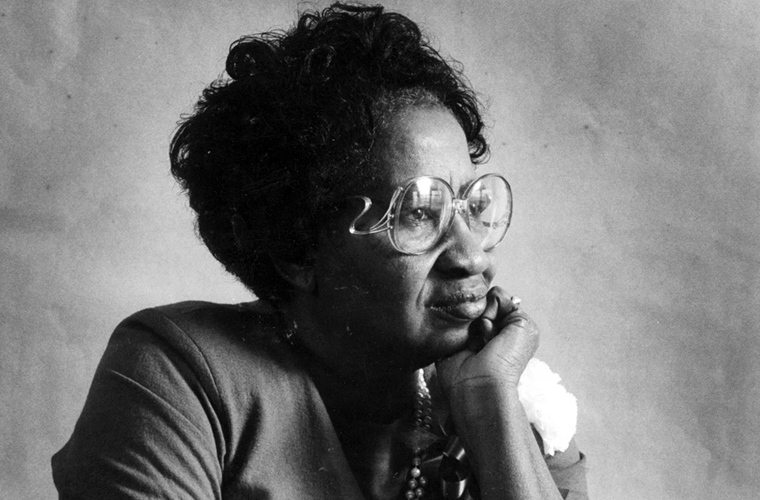Clara Mae Luper, a prominent civil rights leader, was born on May 3, 1923, in Okfuskee County, Oklahoma, to Ezell and Isabell Shepard. Growing up in a segregated society, Luper experienced the challenges of racial discrimination from a young age. Despite these obstacles, she pursued her education with determination and went on to make significant contributions to the civil rights movement in the United States.
Luper’s early education took place in all-Black schools, where she excelled academically. She later attended Grayson High School, where she was one of only five students in her graduating class. The experience of being bussed several miles to reach her school highlighted the inequalities that existed in the education system at the time. However, Luper’s resilience and academic achievements set the stage for her future activism and leadership.
Following her graduation from high school, Luper continued her education at Langston University, a historically Black college in Oklahoma. She then made history by becoming the first African American student to enroll in the history department at the University of Oklahoma. Despite facing prejudice and discrimination, she persevered and earned a master’s degree from the university in 1951. This accomplishment was a testament to Luper’s academic prowess and her commitment to breaking down barriers for African American students in higher education.






Luper’s experiences as a trailblazer in academia laid the foundation for her groundbreaking work as a civil rights activist. In 1958, she made national headlines when she led a successful sit-in protest at Katz Drug Store in Oklahoma City. This event marked the first sit-in demonstration in the United States, preceding the more well-known sit-ins of the civil rights movement by several years. Luper’s strategic planning and unwavering dedication to nonviolent protest were instrumental in the success of the sit-in, which ultimately led to the desegregation of the store.
Building on this momentum, Luper went on to establish the Oklahoma City chapter of the National Association for the Advancement of Colored People (NAACP) Youth Council. Under her leadership, the council organized numerous protests and demonstrations to challenge segregation and racial injustice in Oklahoma. Luper’s commitment to empowering young people to become agents of change was a driving force behind the council’s impactful work.
One of Luper’s most enduring legacies is her role in organizing the historic March on Washington for Jobs and Freedom in 1963. As the coordinator for transportation, she played a pivotal part in mobilizing thousands of individuals from across the country to participate in this landmark event. The march, where Dr. Martin Luther King Jr. delivered his iconic “I Have a Dream” speech, remains a defining moment in the civil rights movement.
Throughout her life, Luper continued to be a leading advocate for social justice and equality. Her tireless efforts extended to various causes, including voter registration drives, community development initiatives, and educational reforms. She remained dedicated to uplifting marginalized communities and ensuring that their voices were heard at all levels of society.
In recognition of her remarkable contributions, Luper received numerous accolades and honors, including the Presidential Medal of Freedom, the highest civilian award in the United States. Her impact on civil rights and her legacy as a trailblazing leader continue to inspire future generations to strive for a more just and equitable world.
Clara Mae Luper’s life story is a testament to the power of perseverance, courage, and unwavering commitment to justice. Her journey from a small town in Oklahoma to the forefront of the civil rights movement serves as a reminder of the profound impact that individuals can have in shaping a more inclusive and equitable society. As we reflect on her legacy, we are reminded of the ongoing work that is needed to fulfill the promise of equality for all.

